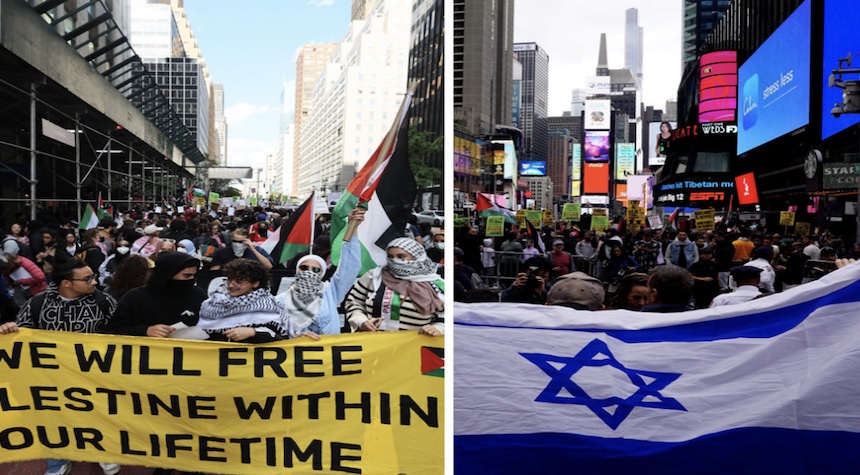This week, after Hamas’s massacres and Israel’s dramatic response to them, the divide in the Democratic Party has been at its widest.
The younger, more radical wing of the Democratic Party is now a lot more sympathetic to the Palestinians. The young radicals could not be moved by the images and news from Gaza, where Israeli civilians were slaughtered by the hundreds.
They claim that Israel is to blame.
A YouGov/Economist poll conducted from Sunday to Tuesday found that 42 percent of Americans sympathized with Israelis more than Palestinians. Another 22 percent of Americans said that their sympathies are about equal. About 25% were unsure.
Looking at the cross-tabs, however, it is immediately apparent that the Democratic Party has divisions on this issue. These divisions are based on generational lines.

Politico:
Liberal activists have claimed that Israel is responsible for the deaths, citing its support for settlement expansion in the West Bank, and the economic and safety restrictions imposed on Gaza. Several Democratic lawmakers called for a stronger recognition of Palestinian sovereignty in the wake of the launch of the war. Benjamin Netanyahu, the Israeli prime minister, has been urged by many to refrain from escalating his response. Biden said that on Wednesday he had told Netanyahu that Israel should “operate according to the rules of war going forward” in one of several phone calls.
There are also divisions within the Democratic Party’s electorate. This highlights the danger that the attack last week and the war that followed could split party leaders and loyal supporters from the younger and more liberal segments of the voter base. According to the latest Economist/YouGov survey, 28 percent of self-identified Democrats sympathized equally with both groups, while 26 percent sympathized more strongly with Israel, and 15 percent with the Palestinians.
The split between Democrats appears to be driven by age and ideology.
It is hard to draw a line between older and younger generations. In my opinion, the further we move away from the Holocaust and the more distant memories become, the lower the emotional attachment to Israel will be.
Israel has always had enemies around it, but with the passing of the years, its image as a scrappy, weak underdog has diminished. Israel has become a regional powerhouse, with a nuclear arsenal and a professional army that is well-trained. This has, no doubt, contributed to the decline in sympathy for Israel – until the Jewish State is attacked. As the polls indicate, the Americans, except for a small group of Democrats, united behind Israel.
A Fox News poll conducted from Saturday to Monday also revealed similar differences by age and party. The poll found greater support for Israel. It did not give respondents the option to say they supported both groups equally. However, majorities and near-majorities among Democrats (59%) and voters aged under 35 (49%), as well as voters 65+ (82%) said that they supported Israel more in the “Middle East conflict”.

A Morning Consult survey conducted from Tuesday to Thursday found that there was a large party split. Republicans were about twice as likely than Democrats to sympathize with Israelis.
Sam Weinberg is the executive director of Path to Progress, a liberal youth group. He said, “I believe that the sympathies and support of young people and the people on the left in general are with those who see themselves as being disadvantaged.” Weinberg believes that young people are more “nuanced” in their views on the Israeli-Palestinian issue.
The radical youth, in fact, are incapable of discerning nuance, and as a result, they have been taken in by Hamas propaganda and Arab propaganda. This is a sad testimony to higher education’s inability to instill critical thinking into the youth, instead preferring to brainwash them with ideologies.


